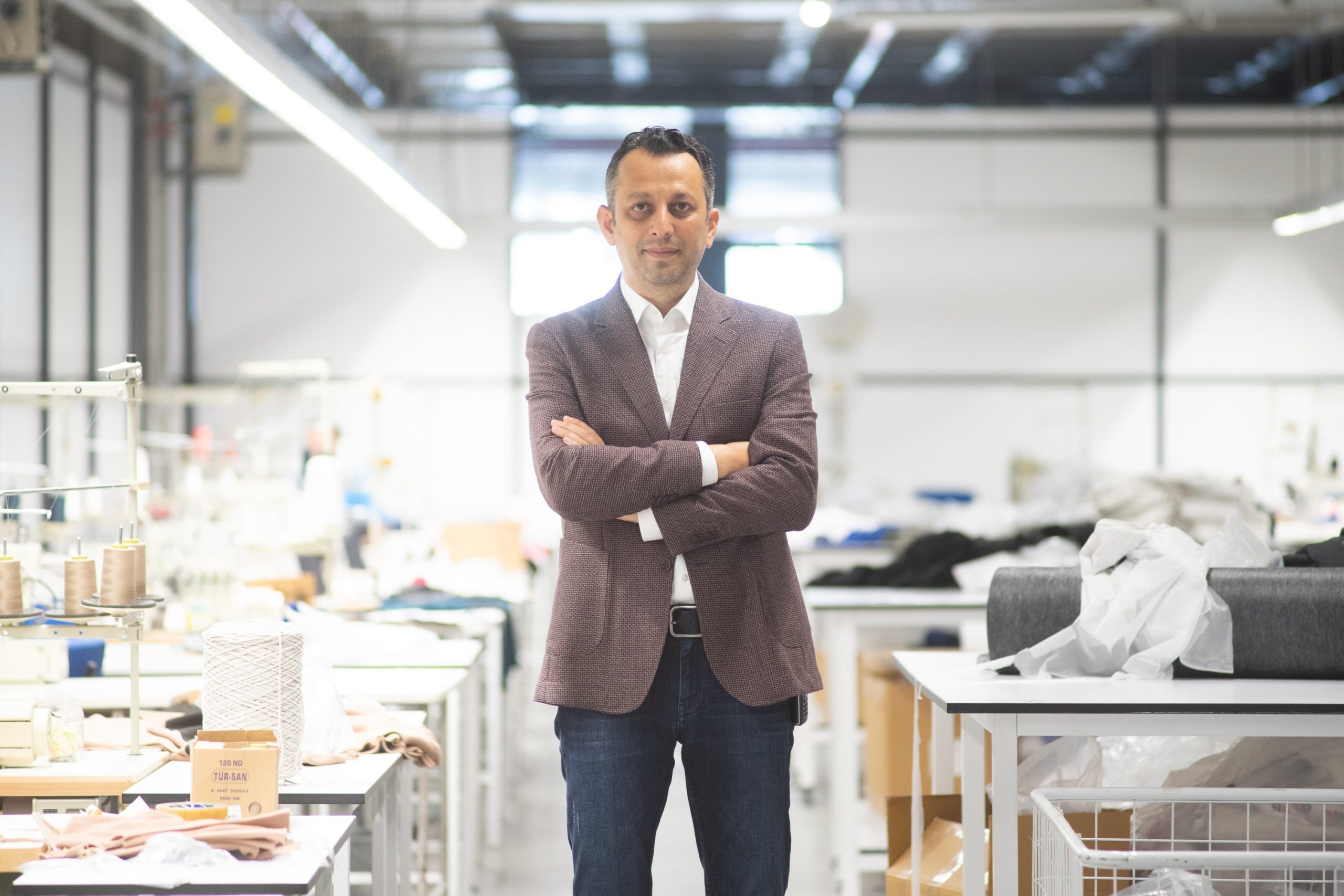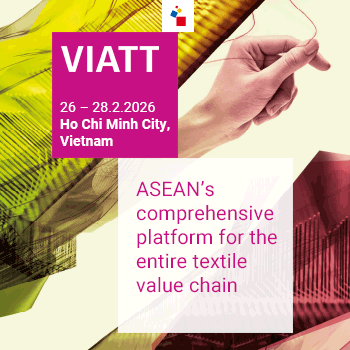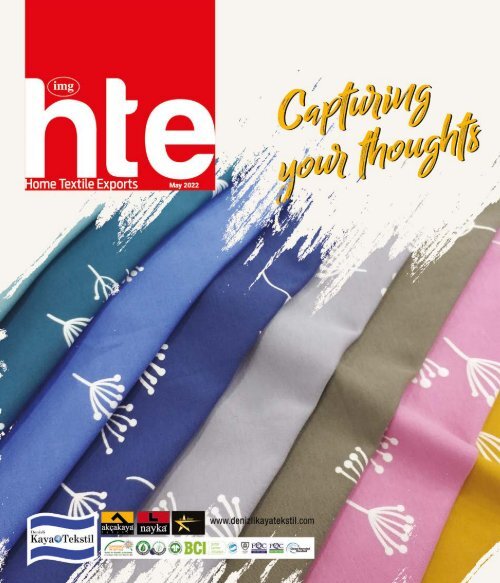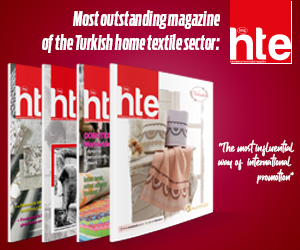Bordo Group Vice Chairman Fahri Şahin explained that, “The consumer behaviours are changing in the textile sector. The demands of the new generation are different than the previous generations. The circular economy trends in the textile sector are metamorphosing. Sustainability in the clothing sector is becoming more important than ever. It is time to say new things for the Turkish textile sector.”
Businessperson Fahri Şahin made a statement about the new trends in the ready-made clothing and textile sector after coronavirus (Covid-19) pandemic. Şahin emphasised that the textile sector experienced a transformation like other sectors during the pandemic process and stated that, “In this period, digitalisation is the most popular topic in the textile sector and digitalisation continues to be the most popular topic. AI and digital transformation-based textile applications are critically important. The textile businesses that kept their distances with digital transformation begin to fall behind the competition.” He further stated that “A new order in textile is waiting for us after the pandemic” and added, “Textile firms that have infrastructure that matches Industry 4.0, those that care digitalisation in the production process, adapt to the remote-working business model and effectively manage these processes will minimise the risks and be one step ahead in the sector.”
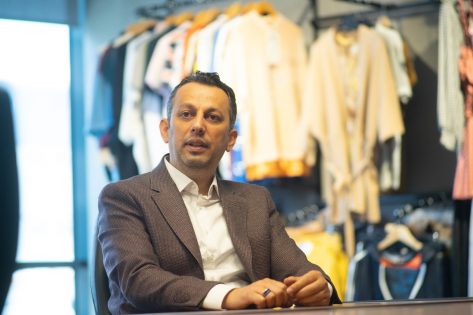
“PLM solutions provide digital strategy in the pandemic”
Fahri Şahin reminded that Product Lifecycle Management (LM) solution in the textile sector is a new generation application and stated that, “PLM solutions are offered as strategic solutions to firms that are active in fashion, shoe, sportswear, luxury wear and home textile fields. These solutions enable the firms to achieve their operational digital transformation solutions in a shorter time. PLM which is an innovative business solution can coordinate the supply chain of these firms easier. PLM has an important position among textile trends as this solution offers a digital strategy in unexpected situations such as a pandemic.
“Solar energy must be used more effectively in ready-wear”
Experienced textile businessman Fahri Şahin remarked the importance of using renewable energy. He expressed using solar energy in ready-wear more effectively and continued, “Renewable energy is an environmentally-friendly and ecologic system. The most important resource among these is solar energy. The textile sector which is one of the locomotive sectors in economic life requires a high amount of energy. Therefore, we must be oriented towards the renewable energy resources as alternatives to traditional energy resources. Our country is rich in terms of renewable energy resources. We must make sure to use renewable energy resources more in production and climatization stages of the textile industry. Thus, we can follow a sustainable energy strategy in textile in terms of economy and environment.”
“Traditional supply chain methods fell short”
Fahri Şahin remarked the key role of digitalisation in the supply chain during the pandemic. Şahin emphasised that the traditional supply chain fell short in this unexpected crisis environment and expressed, “The traditional methods in the supply chain fell short for current business processes. This had negative reflections in the textile sector. We will need sustainable, flexible and dynamic supply chains that are not impacted from short- or medium-term extraordinary changes. Therefore, textile firms are directed to an effective supply chain in their operations. The supply chain management methods that minimise the risks under conjunctural circumstances will gain ground in the sector. The firms must determine alternative supply chain and sales channels and sub-branches of the supply chain must be adapted for the new normal.”
“90% of the clothes are destroyed as waste”
Şahin stated that sustainable fashion approach was mentioned more during the pandemic period and said, “Sustainable fashion is completely embedded in the textile industry. As Bordo Group, we greatly care for sustainable fashion. Our production line has sustainable and organic cotton textiles. Sustainable fashion is not only about the production process. We re-use the produced organic products when the season ends. Textile businesses that can organise their production processes with innovative, sustainable and fashion strategy will gain advantages in various ways.”
Fahri Şahin assessed this topic as follows, “The sustainable marketing and sales techniques in the fashion are in the agenda of the textile sector during new normalisation period. There are various dynamics in how the textile industry can become more sustainable. According to studies, more than 50 tons of cloths are manufactured every year. Approximately 90% of these clothes are destroyed as waste. This is a huge number. When we think about re-using these clothes, it is clear that we will achieve greater gains for the economy and environment. Therefore, every actor in the fashion sector must seriously consider sustainable fashion approach.”
“It is time to say new things in the textile sector”
Şahin also talked about the popular topics in the new textile economy and said, “We need to decrease or prevent the harmful material emission. To increase the number cloth re-use in the clothing design, we need to focus on high-quality clothes. We need to provide an effective process for textile product recycling. This way, we can save billions of dollars every year. Additionally, we need to ensure effective resource use and focus on renewable processes in textile. We may decrease the raw material input need in the textile sector with recyclable textile products.”
Fahri Şahin further emphasised that there is a high demand in the medical textile products during the pandemic. Şahin stated that medical textile export should be facilitated and concluded that, “The demands of the new generation are different than the previous generations. The circular economy trends in the textile sector are metamorphosing. Sustainability in the clothing sector is becoming more important than ever. The demand for anti-bacterial products around the world is increasing. The environmentally conscious production is becoming the undeniable truth. When we add these things up, we can say it is time to say new things about the Turkish textile sector.”

